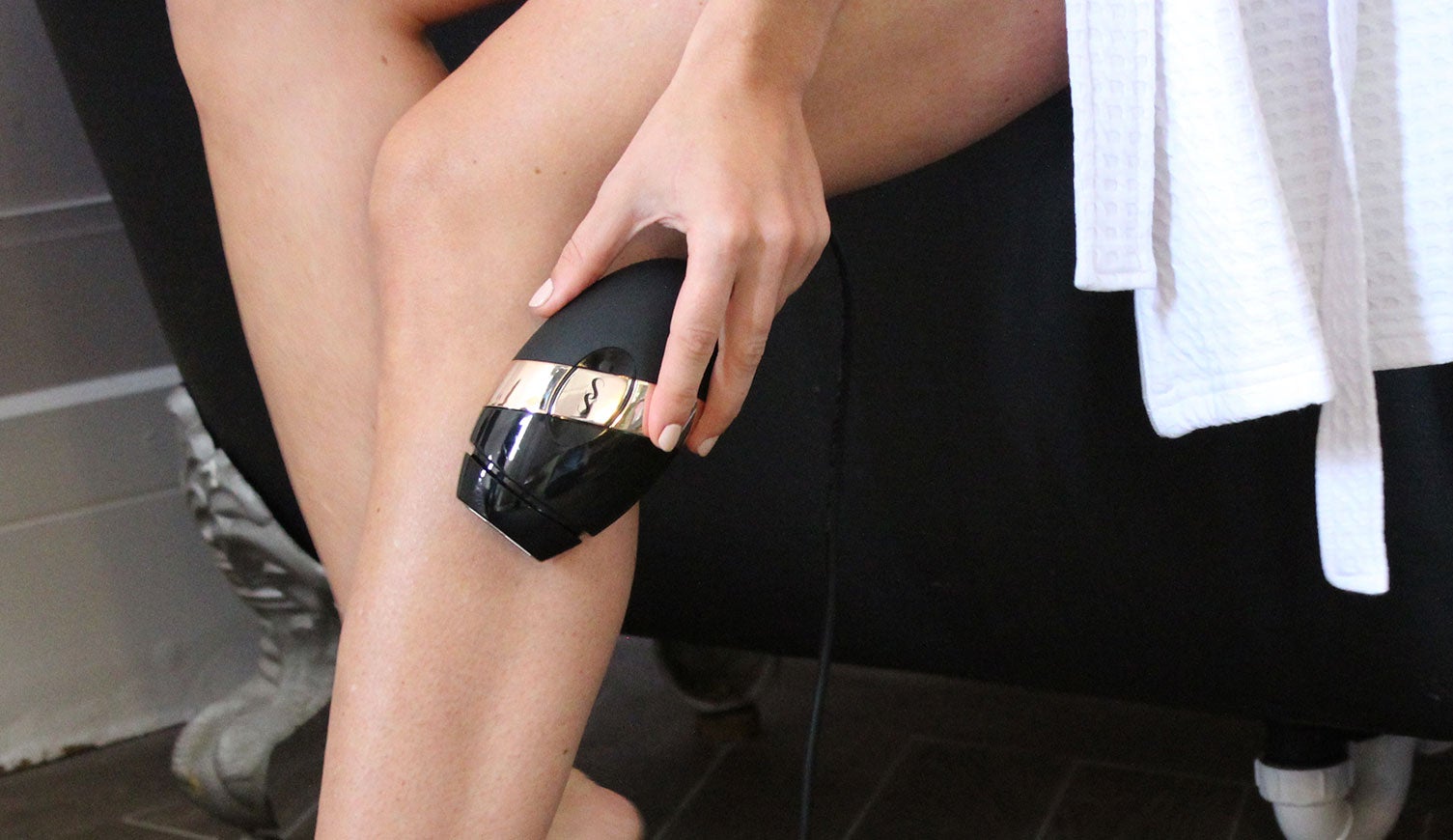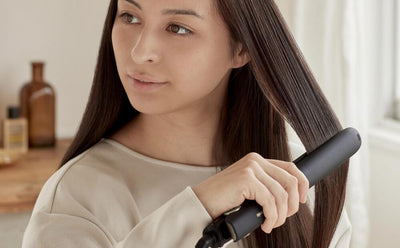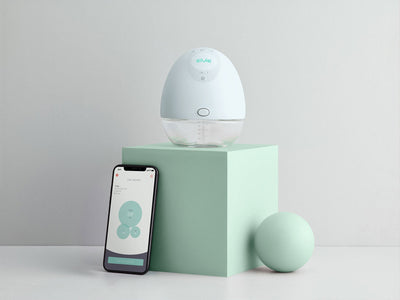Skincare
Whether you're looking to tone and tighten the skin, improve facial contour or remove hair for good, you don’t need to worry about leaving the house to achieve clinic-worthy results.
From what they are to how they work, we give you the lowdown on the salon technologies and treatments you can recreate in the comfort of your own home.
1. Microcurrent
What does it do?
Microcurrent facials are often referred to as the ‘natural’ facelift and have been branded as the ‘workout for your face’. Microcurrent helps to improve muscle tone, by stimulating collagen and cell renewal. This firms the skin and therefore reduces the appearance of fine lines and wrinkles. The treatment is a natural and non-invasive alternative to fillers.
How does it work?
The microcurrent mimics the body’s natural electrical current, sending tiny electrical impulses to the muscle, to stimulate and enhance skin tissue renewal. The microcurrent stimulates collagen production in the dermis (the deepest layer of your skin), whilst gently erasing signs of ageing in the epidermis (the top layer of your skin). The microcurrent delivered to this skin is gentle, so the procedure is completely safe, painless and non-invasive. To put it into perspective, it would take 1,000,000 microcurrent machines to power a 40-watt light bulb.

Salon treatment
Microcurrent facials in salons can take anywhere from 20 - 80 minutes, depending on the type of treatment you have. A thin layer of gel is applied to the face, then the treatment is delivered through a metal prong with wet cotton-tipped ends that conduct the microcurrent into the skin.
To see maximum results, it’s recommended to complete a full course of 10-12 treatments over the course of 5-6 weeks.
A 60 minute treatment can cost on average around £70, so it doesn’t take long to realise that the recommended course of treatment can add up to a potential £840.
The at-home solution
Recreate the magic of microcurrent at home, with devices such as the NuFACE Trinity (RRP £315) and NuFACE Mini (RRP £167) which harness the power of microcurrent technology to deliver salon-worthy results.
The initial recommended treatment course is a little more frequent and spans longer than your standard salon microcurrent facial. For example, when using devices like the NuFACE Trinity we’d recommend starting a treatment plan of 5 days a week, for 60 days. Then when you’re happy with the results, you can scale back your treatments to 2-3 times a week.
You can see instant results with microcurrent treatments, but like working out in the gym, it’s something you have to do continuously
However, you only need to use the device for 5 minutes a day per treatment area, meaning your treatment times are significantly reduced.
As like everything, you need to keep up the recommended treatments to see long-lasting results. You can see instant results with microcurrent treatments, but like working out in the gym, it’s something you have to do continuously to reap the long lasting benefits.
2. Radio Frequency
What does it do?
Treatments are primarily used to treat skin laxity issues, to tighten and tone the skin. The forehead, jawline, neck, eyes and cheeks can all be treated with Radio Frequency technology. Treatments are generally best suited to those with mild to moderate loose or sagging skin, usually people in their mid 30s to 50s. Most people after a course of treatment should see their skin tightness has visibly improved, with the appearance of fine lines and wrinkle minimised and general skin texture improvement.

How does it work?
The Radio Frequency is transmitted into the skin. The energy stimulates dermal activity by gently heating the skin cells, accelerating the natural production of collagen and contraction of collagen fibres to restructure and tighten the skin.
Salon treatments
Similarly to microcurrent facials, a thin layer of gel is first applied to the skin. An applicator is then moved around the skin in circular motions to deliver the Radio Frequency current and gently warm the skin. The desired temperature for the skin is reached and maintained for 2-3 minutes before moving onto the next area.
Each session lasts for around 30 - 45 minutes, and an aesthetician will recommend a treatment plan of 6-8 treatments at 1-2 weekly intervals.
Treatment prices can be broken down by treatment area, for example: face, neck and decolletage. If you wanted to treat all 3 areas, the price would be around £150, so around £1200 for one full course of treatment.
The at-home solution
At-home Radio Frequency devices have been created that are safe and effective enough to deliver anti-ageing results at home. Some of these treatments also take a fraction of the time too, like the TriPollar STOP X (RRP £349), which has a total treatment time of just 6-8 minutes. The procedure works in the same way as salon treatments, by delivering Radio Frequency waves to the skin, gently heating to tone and tighten.
3. LED Light Therapy
What does it do?
If you want to restore your youthful glow, LED light therapy could be the answer. This treatment rejuvenates the skin, increasing hydration, calms redness and reduces the appearance of fine lines and wrinkles, to give your skin a radiant, healthy glow.
How does it work?
The LED light penetrates the deeper layers of the skin, enhancing cell metabolism and encouraging faster skin cell regeneration. This means the production of collagen and elastin is accelerated, increasing blood flow and repairing skin tissue faster.
Salon treatments
A single 30 minute LED light facial treatment averages at around £60. Aestheticians recommend that a course of 10 treatments is needed for best results, which totals to £600 for one treatment course. However, this type of treatment needs to be continuously topped to continue to see results.
The at-home solution
Treating yourself to an LED light facial at home can save you a lot of money in the long run. All you need for the treatment is your own LED mask, like the CurrentBody LED Light Therapy Mask (RRP £325).
After the initial treatment course, you just need to complete top-up treatments as and when you feel your skin needs an extra boost.
As we say with all of our at-home beauty devices, treatments should initially be done little and often for best results. For example, use the mask for 10 minutes a day, 3-5 times a week for the first 4 weeks. Then after the initial treatment course, you just need to complete top-up treatments as and when you feel your skin needs an extra boost.
4. Microdermabrasion
What does it do?
This treatment is used to buff away the top surface layer of skin, gently exfoliating to remove any dead skin cells. Regular Microdermabrasion treatments help to increase circulation and blood flow, stimulating the production of collagen to reduce the appearance of fine lines and wrinkles. Treatments can be performed on areas such as the face, chest, neck, arms and hands.
How does it work?
Usually, a diamond-tipped exfoliation is paired with a gentle suction to complete treatments. The treatment works by breaking up the stratum corneum (the outer layer of the skin), which is a layer of dead skin cells that acts as a barrier to the lower skin layers. The body reacts to this in the same way it would a mild injury, and rushes to replace the lost skin cells with new, healthy ones.
By also removing the outer layer of skin, skincare becomes more effective as you are removing the barrier to allow active ingredients to penetrate the lower layers of the skin.
Salon treatments
Instant results can be seen with Microdermabrasion, but to see some of the lasting anti-ageing benefits, a course of treatments is recommended. How many treatments you attend and the frequency of those treatments will depend on the kind of results you want to achieve. Typically, you can have a Microdermabrasion treatment every 10-14 days if you wanted, or spread out further over the course of a few weeks. A single treatment can start anywhere from around £55. So say if you wanted to complete a course of 6 treatments, the treatment course could start from £330.
The at-home solution
There are a few different devices to choose from when looking to incorporate a Microdermabrasion treatment into your at-home skincare routine. The closest at-home solution to a salon Microdermabrasion treatment is the TrophySkin MicrodermMD (RRP £219). The device comes with 8 different settings, with additional modes like manual and sensitive mode so you can customise your treatment. The device has a digital screen that guides you through the treatment so you can recreate Microdermabrasion as accurately as possible.
Or if you have a smaller budget, the TrophySkin Mini MD (RRP £85) is an excellent Microdermabrasion device, it’s a simpler version of the MicrodermMD, as you don’t get the extra settings and treatment modes, but is still an effective alternative to salon treatments. Treatment times start from 5 minutes, and we recommend repeating on the desired treatment area 2-3 times a week for best results.
Both devices come with a salon-grade diamond-tip, which is a key feature to look for when selecting your at-home Microdermabrasion treatment, as this is how the exfoliation part of the treatment is conducted.
5. IPL Hair Removal
What does it do?
Intense Pulsed Light (IPL) technology works to stunt the hair cycle, preventing hair regrowth. The treatment should slow the hair regrowth down, so that eventually you would only need to treat the desired area once every 2-4 months. This is hugely different to your usual shaving routine, in which some women shave 2-5 times a week.
How does it work?
The IPL technology transfers light energy through the skin’s surface. This light energy is absorbed by the melanin in the hair shaft. The hair shaft, or root, is where the highest concentration of melanin is located so this treatment is able to target this area under the skin. The light energy is converted into heat energy, which destroys the hair producing papilla or entire hair follicle, stunting the natural hair cycle and preventing hair regrowth.

Salon treatments
6-9 IPL treatments are recommended in salon for best results. Sessions are charged per treatment area, which we’ve found to average around £150 for the face, £80 for bikini line, £65 for underarms and £160 for the legs. So if you were looking to treat your full body for the recommended 6-9 treatments, a course of treatments could average at £2,700. Depending on the desired treatment area, treatment times can range from 20 - 45 minutes.
The at-home solution
You can save yourself a lot of time and money by recreating your own IPL treatments at home. Permanent hair reduction devices start from as little as £199, with many devices coming with unlimited flashes - which means you have a lifetime of treatments without the need to buy additional cartridges.
The SmoothSkin Bare+ is the fastest IPL device on the market, completing a full body treatment in just 10 minutes.
Full body treatments can range from 10 - 30 minutes with our range of at-home IPL devices. The SmoothSkin Bare+ is the fastest IPL device on the market, completing a full body treatment in just 10 minutes. Treatments generally need to be completed once a week for 12 weeks at the start, then you can proceed to only complete top up appointments thereafter every 2-4 months, depending on the rate of your hair regrowth.
6. Facials
What do they do?
A good, thorough cleanse is the foundation of a facial and the key to achieving a more radiant, brighter complexion. The benefits of cleansing are endless, from flushing out clogged pores to better absorption of skincare, all treatments are normally tailored to your skin type and any specific problems areas you may have. Treatment times vary, but to complete a full facial a treatment would normally last around 60 minutes, but now there are some revolutionary at-home devices changing the way we cleanse our face.

Salon treatments
Facial times can vary depending on the treatment, but can take anywhere from 30 minutes for an express facial to more thorough 80 minute treatments. For the top end of the scale, facials can cost on average £150 for one treatment.
The at-home solution
There are a range of cleansing devices giving us the opportunity to achieve salon-worthy results at home. Many devices can be customised with different brush heads to combat specific needs, such as the Clarisonic Mia Smart (RRP £185) and their range of brush heads. Adding cleansing to your at-home routine means you can build a personalised skincare routine, with the products that work best for your skin. After all, who knows your own skin better than you, right?
Adding cleansing to your at-home routine means you can build a personalised skincare routine, with the products that work best for your skin. After all, who knows your own skin better than you, right?
You can achieve a thorough cleanse in as little as 60 seconds, meaning you can easily incorporate this step into your routine, both morning and night. By removing excess oils and dirt, you’ll achieve better absorption of skincare and achieve a brighter complexion.





















